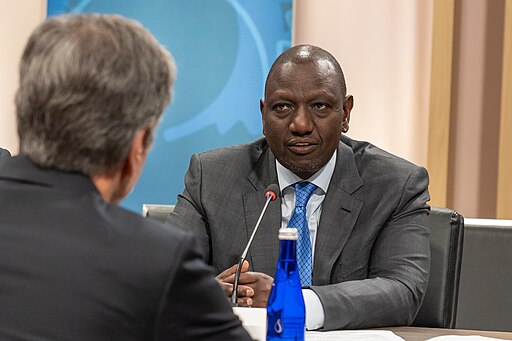The Judicial Service Commission (JSC) expressed discontent on Wednesday over Kenyan President William Ruto’s comments concerning the judiciary’s functioning. Chairperson of the JSC Chief Justice Martha Koome issued a statement highlighting concerns about criticism faced by judges for perceived opposition to state programs.
According to the statement:
The Commission wishes to draw the attention of State and Public Officers to the fact that the Constitution places positive duties on the State tp ensure respect for the law and adherence to the law by providing citizens with effective mechanisms for resolving disputes between them and the State. Where a citizen obtains a court order against the State and that court order is deliberately ignored or disobeyed by State officials, the right of access to justice is undermined because it fatally attacks the effectiveness of the legal system on which ordinary citizens rely to have their rights and legal duties enforced.
Further emphasizing the judiciary’s independence under Article 160(1) of the Constitution, the commission, mandated by Article 172(1), also vowed to address any allegations of misconduct or corruption against judges or judicial officers.
In a memo to judicial officers as seen by independent Kenyan news source Nation, Koome cautioned against compromising the rule of law when state officials threaten to defy court orders. She urged the judiciary to enforce all court orders and called upon stakeholders to uphold the rule of law.
Ruto on Tuesday stated that his government would not follow court orders. He accused the judiciary of taking bribes in order to sabotage the government. He also cited instances where the court ruled against the government initiatives such as the universal health coverage and the housing levy. Ruto’s statements attracted backlash from citizens, politicians, judicial officers and civic society organizations alike.
The Kenya Human Rights Commission (KHRC), Muslims for Human Rights (MUHURI), and Social Justice Center Working Group (SJCWG) jointly criticized the president’s remarks, emphasizing the importance of upholding the rule of law and the doctrine of separation of powers. The organizations demanded an unequivocal apology from Ruto and an end to attacks on the judiciary.
The Law Society of Kenya also cautioned Ruto against such statements, urging him to use legal avenues to challenge objectionable decisions instead of undermining the rule of law. The Vice-President of the Law Society of Kenya announced plans for lawyers to march in protest, symbolized by wearing purple ribbons, against developments undermining the rule of law in the country.
Despite widespread criticism, Ruto maintained his stance on the matter. In responding to some of the criticisms leveled against him by top lawyers in the country, he posted:
(Lawyer) Ahmednasir SC, you warned me of sabotage by corrupt judicial officers. I told you there are many good officers in the judiciary and that we will root out the corrupt. We shall. Muite SC, the impunity of bribing judges so as not (sic) to derail, delay, or sabotage Kenya’s imminent transformation will never happen under my watch. Not a single cent will be used to bribe anybody. Mambo ya wafisadi wote ni yale nilisema.



